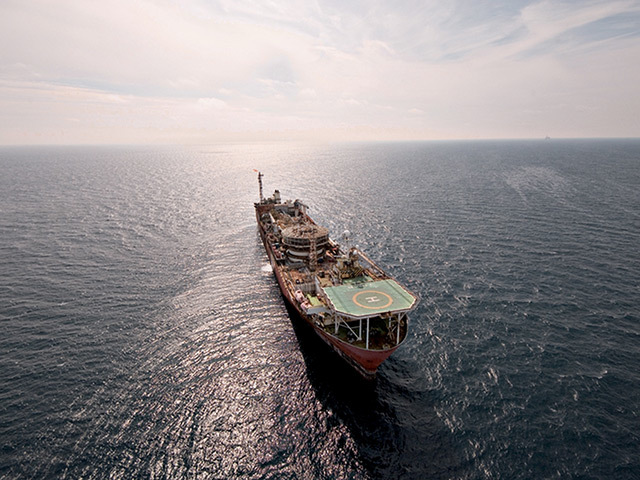
An independent operator has filed a lawsuit to stop plans to decommission the Gryphon floating production storage and offload (FPSO) vessel.
Nobel Upstream launched the judicial review, which seeks to stop operator TotalEnergies starting decommissioning work next year.
The group issued the claim against the North Sea Transition Authority (NSTA), which provides OPRED with recommendations regarding Decommissioning Programme approvals.
Nobel warned that the shutdown of Gryphon would force it to abandon two fields in which it has a stake and quit the UK North Sea altogether.
Nobel Upstream CEO Larry Bates said: “Taking this course of action is an option of last resort. Nobel Upstream has engaged in good faith with the UK oil and gas regulator (NSTA), and the operator of the fields in which we have invested, TotalEnergies; however, our open engagement over the past 18 months has not been reciprocated.
“UK oil and gas production is regulated based on the principle of maximising economic recovery, as outlined in the OGA strategy.
“Production from these mature fields has already been licensed and holds hundreds of millions of dollars’ worth of recoverable hydrocarbons. There is no case for an early cessation of production within our licences, and having exhausted all other avenues of engagement, it is regrettable that we must apply to the court to ask for it to assess the decision-making process, and to critically assess what evidence has been provided to justify the NSTA’s position.”
Gryphon FPSO
In addition to producing from the Gryphon field itself, the FPSO hosts subsea tiebacks to the Maclure and Tullich fields as well as Ballindaloch in Block 9.
Nobel Upstream holds a 7.6% stake in Maclure, with operator TotalEnergies holding 38.2%, Taqa 37% and Apache 17.2%. Nobel also holds 8% in Ballindalloch and TotalEnergies holds the 92% operating stake.
The Gryphon FPSO processes around 1% of the UK’s gas supply and between 1.25% and 3% of its oil.
Gas is exported via a pipeline to Beryl A and through the Scottish Area Gas Evacuation (SAGE) system to St Fergus.
TotalEnergies filed its plans to decommission the platform in 2023. This envisions the platform ceasing production on 31 December 2024, with decommissioning activities taking place from 2025 through to the of 2026.
The Gryphon decommissioning plan is still awaiting final approval by the Department for Energy Security and Net Zero (DESNZ).
A court decision on permission to pursue the judicial review is not expected until the end of the first quarter of 2025.
When contacted, the NSTA informed Energy Voice that it does not comment on ongoing litigation. TotalEnergies also declined to comment.
Existing production
The Gryphon FPSO was put into dry-dock for extensive upgrades in 2011 following the loss of four anchor lines during a heavy storm. Production later resumed in May 2013.
The Health and Safety Executive (HSE) has previously raised issues with safety processes on the vessel. In 2022, it issued an improvement notice over failures in TotalEnergies’ maintenance processes on the vessel during gas compressor maintenance.
In addition, in 2021, the HSE hit the vessel with another improvement notice due to a backlog of “safety and environmental-critical” maintenance.
However, an independent certification of Gryphon by DNV verified the vessel to November 2027, with no overdue conditions found.
The Gryphon Alpha was the North Sea’s first purpose built permanently moored FPSO, based around 100 miles southeast of Shetland. It has been continuously operating for over 30 years since being installed in 1993.
French firm Total inherited the asset through its 2018 of takeover Maersk.
The French energy giant holds an 86.5% operating interest in the asset, alongside Sojitz Energy Development (13.5%).
Chairman of Brindex Robin Allan issued a statement in support of Nobel Upstream, stating: “Maximising economic recovery of UK oil and gas in the national interest, is a statutory duty of the NSTA. UK oil and gas production means UK jobs, UK tax revenue and UK energy security.
“The government’s proposed changes to the tax regime puts new development at risk and a manifesto commitment was made to ‘manage existing fields for the entirety of their lifespan’, meaning any threat to existing production should be taken very seriously.”
Recommended for you

